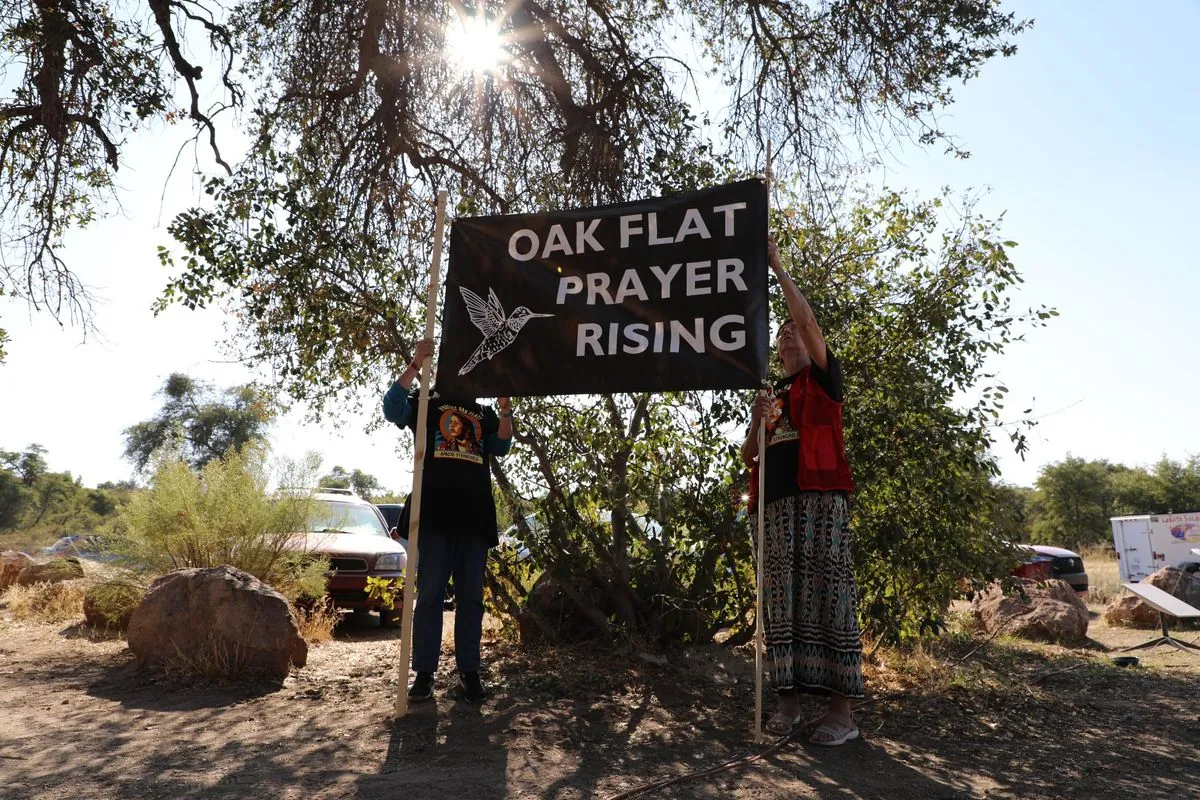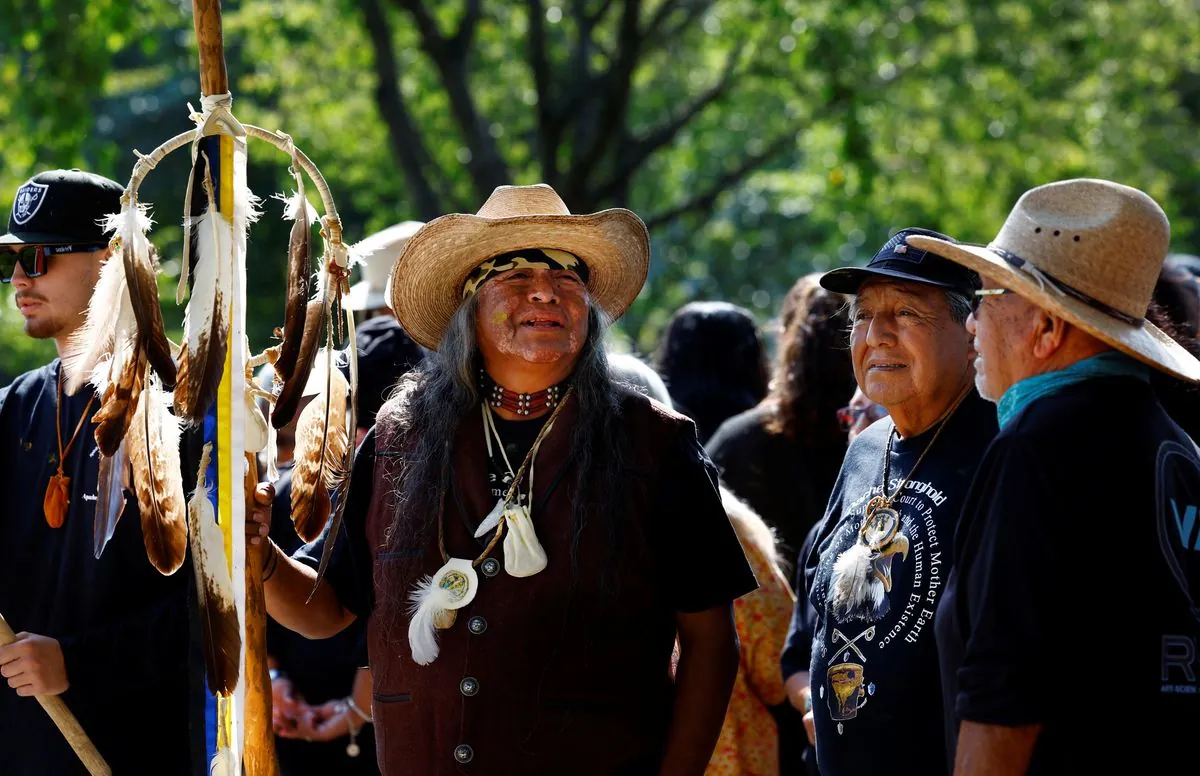Apache Group Seeks Supreme Court Intervention in Copper Mine Dispute
Native American organization appeals to block access to sacred land for major copper mine development. Case highlights tension between religious rights and energy transition needs.

In a significant legal move, a Native American organization has petitioned the U.S. Supreme Court to prevent access to Arizona land earmarked for a substantial copper mining project. This appeal, filed on September 11, 2023, marks the latest development in an ongoing conflict between religious rights and industrial progress.
The Apache Stronghold, representing members of the San Carlos Apache tribe and environmental advocates, is challenging a March 2023 ruling by the 9th U.S. Circuit Court of Appeals. This decision had permitted the federal government to exchange land with mining giants Rio Tinto and BHP for their Resolution Copper venture.

The dispute centers on Oak Flat Campground, known as Chi'chil Biłdagoteel in Apache, a site of profound spiritual significance. This area, which the Apache have inhabited for centuries, sits atop a vast copper reserve crucial for electric vehicles and electronic devices. The proposed mine would create an enormous crater, effectively destroying this sacred space.
"That legal argument is astonishingly broad and harmful to Native Americans and people of all faiths"
The case highlights the complex interplay between government authority, corporate interests, and indigenous rights. The U.S. Department of Justice maintains that the government can allocate its land as it sees fit, regardless of religious considerations. This stance has drawn criticism from religious freedom advocates.
Rio Tinto and BHP have invested over $2 billion in the project without producing any copper. The companies argue that the case does not warrant Supreme Court review, citing the previous court ruling in their favor.
The timing of the appeal coincidentally aligns with the four-year anniversary of Rio Tinto's decision to dismiss its former CEO over inadequate consultation with Indigenous groups in Australia, underscoring the ongoing challenges in balancing corporate interests with indigenous rights.
As the Supreme Court considers whether to hear the case, the outcome could have far-reaching implications for religious freedom, land rights, and the future of copper mining in the United States. The court's decision, if it agrees to review the case, could be expected by June 2025, potentially reshaping the landscape of indigenous rights and resource extraction in America.


































